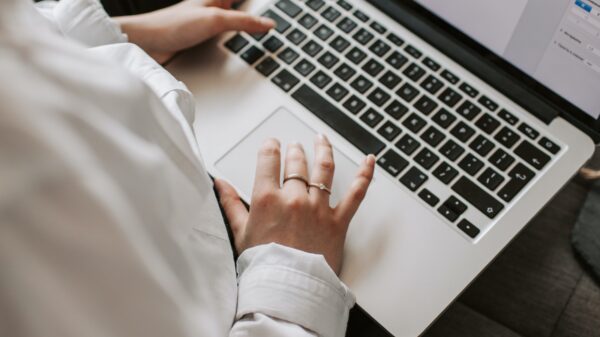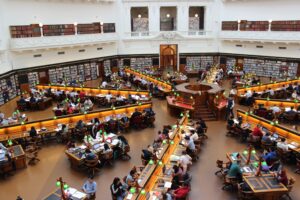
As the school year comes to an end, it’s easy for students and teachers alike to feel burnt out and ready for a break. However, before you put your books away and head off on summer vacation, take some time to reflect on the past year. Reflection may not seem like the most exciting activity, but it’s crucial for student success. In this blog post, we’ll explore why reflection is so important and how you can use it to end the school year strong. So grab a pen and paper (or your favorite note-taking app) and let’s get started!
Introduction
Reflection is the process of taking time to think about your experiences, both good and bad. It allows you to learn from your mistakes and figure out what you could have done better. Reflection is crucial for student success because it helps you become more aware of your own learning process and how you can improve.
When you reflect on your school work, pay attention to both the positive and negative aspects of your performance. For example, if you got a good grade on a test, why do you think that is? Was it because you studied hard or because the material was easy? On the other hand, if you did poorly on a test, what factors do you think contributed to that? Did you not study enough? Did the material covered in class confuse you?
Asking yourself these kinds of questions can help you understand your strengths and weaknesses as a learner. Once you know where you need to improve, you can take steps to make changes in how you study or approach assignments. For example, if you realize that you need to spend more time studying for tests, then make a plan to study for at least an hour every day leading up to the test date. If confusion over classroom material is holding you back, talk to your teacher or another student who seems to understand the concepts well. They may be able to explain things in a way that makes more sense to you.
Making reflection part of your regular routine will help ensure that end-of-year reflection
Benefits of Reflection for Students
Reflection is crucial for student success because it allows students to take a step back and assess what they have learned. It also allows them to set goals for the future and reflect on their progress. Furthermore, reflection helps students to connect their experiences with their learning, which can lead to deeper understanding and greater application of knowledge. Reflection can also help students to identify areas in which they need improvement and develop strategies for overcoming challenges. By taking the time to reflect on their school year, students can ensure that they end the year strong and set themselves up for success in the future.
Types
There are many different ways that students can reflect on their learning. Some reflection strategies are more effective than others, and it is important for students to find the right strategy for them. Here are some different types of reflection strategies that students can use:
1. Writing in a journal: This is a great way for students to get their thoughts and feelings down on paper. Journals can be used to reflect on daily experiences, or they can be used to process longer-term events.

2. Drawing or creating art: Some students prefer to express themselves through art. This can be a great way to process emotions and reflect on experiences.
3. Talking with someone: Sometimes, it can be helpful to talk about experiences with someone else. This could be a friend, family member, teacher, or counselor. Talking about what has happened can help to make sense of it and gain new perspectives.
4. Taking some time alone: For some people, it is helpful to have some time alone to think things over. This could involve taking a walk, sitting in nature, or simply spending some time alone with your thoughts.
5. Reflecting with technology: There are many different apps and websites that can help with reflection. These can be used to journal, track goals, and get feedback from others.
How to Incorporate Reflection into Everyday Life
Reflection is a powerful tool that can help students learn and grow. By taking time to reflect on their experiences, students can identify what they did well and what they need to improve. Reflection can also help students set goals for the future and develop a plan to reach those goals.
There are many ways to incorporate reflection into everyday life. One way is to keep a journal. Students can write about their day-to-day experiences and reflect on them at the end of each week or month. Another way to reflect is to talk with someone who will listen openly and supportively, such as a parent, teacher, or counselor. Students can reflect on their own by thinking about what they did well and what they could have done better.
No matter how students choose to reflect, it is important that they take the time to do it regularly. Reflecting on their experiences will help students learn from their mistakes and make better choices in the future.
Tools and Resources Needed for Effective Reflection
There are a few things you’ll need in order to reflect effectively. First, you’ll need some time alone to think about your experiences over the past year. You might want to journal or just sit quietly and think. It’s important to be honest with yourself during this process – don’t try to sugarcoat anything or make excuses. Just take a good, hard look at what went well and what didn’t.
Next, you’ll need an open mind. Be willing to accept that there might be areas where you could improve. It’s not pleasant to face our shortcomings, but it’s necessary if we want to grow as individuals.
You’ll need some tools to help you reflect. A journal can be a great way to get your thoughts down on paper (or screen). There are also plenty of reflection prompts available online – a quick Google search will turn up lots of options. If you’re struggling to get started, try using a reflection template or guide. These can give you some structure and help you focus on the most important aspects of your reflection.
How to Make a Yearly Reflection Plan
When it comes to student success, reflection is key. By taking the time to reflect on their year, students can identify what went well and what could be improved upon. This process can help them set goals for the future and make a plan for how to achieve those goals.
There are a few different ways to reflect on your year. You can reflect on your academic performance, extracurricular involvement, and personal growth. To get the most out of your reflection, it is important to be honest with yourself and take an unbiased look at your year. Once you have identified areas of improvement, you can start to develop a plan for how to address those areas.
One way to make sure you stick with your reflection plan is to set aside time each week or month to reflect on your progress. This will help you stay on track and ensure that you are making progress towards your goals. Additionally, consider sharing your reflection plan with a trusted friend or family member who can support you in achieving your goals.
By taking the time to reflect on your year and develop a plan for the future, you can set yourself up for success in the coming year.
Conclusion
Reflection is an important part of the learning process and can be a powerful tool for students to engage in self-discovery, build skills that they need to become successful learners, and ultimately help them reach their goals. Taking the time out at the end of each school year to reflect on what you have learned, how it has impacted your life, and what strategies you want to implement next year can help students make more informed decisions about their education. With reflection as part of their educational journey, students will be better able to identify areas that need improvement and set goals for themselves in order to ensure success both inside and outside of the classroom.







